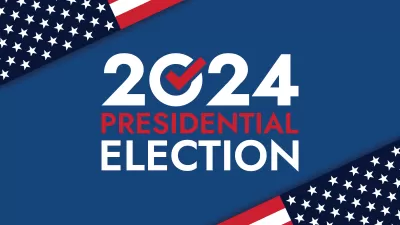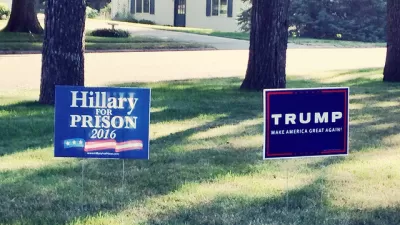In his first substantive statements regarding his ticket's failings during the recent Presidential election, GOP leader Paul Ryan "is looking to the nation’s big cities" as the cause.

In the run-up to the Presidential election much was made about the Republican Party's seeming indifference to urban issues and urban voters, and the reluctance of either candidate to address topics effecting the nation's cities in any of the Presidential debates. Well it turns out such assessments are being echoed by GOP leaders such as Representative .
"'The surprise was some of the turnout, some of the turnout especially in urban areas, which gave the big margin to win this race,' Mr. Ryan said in an interview with WISC-TV back home in Wisconsin on Monday before returning Tuesday to Capitol Hill for the start of the lame-duck session."
"Mr. Ryan's concerns follow on the heels of other Republicans who argue that the party's lack of appeal to minority voters - many of whom live in the nation's largest urban centers - has made it more difficult to win the presidency," say. While Obama did win the urban vote overwhelmingly, the writers throw water on the theory that the urban vote made the difference in this election: "there is little proof from the results of the election that urban turnout over all played the decisive role in swing states like Colorado, Ohio, Pennsylvania, Virginia or Wisconsin, where Mitt Romney lost in Mr. Ryan's suburban home district."
Perhaps Ryan is conflating the GOP's failure to capture much of the country's non-white vote with a misplaced belief that minority voters only reside in cities. At least that's the opinion of Representative Michael M. Honda, Democrat of California, who commented "that 'urban' is 'just another code word for people of color.'"
"But a lot of people of color live in the countryside, too," he added. "He is just grabbing at straws to justify his loss."
FULL STORY: Ryan Sees Urban Vote as Reason G.O.P. Lost

Maui's Vacation Rental Debate Turns Ugly
Verbal attacks, misinformation campaigns and fistfights plague a high-stakes debate to convert thousands of vacation rentals into long-term housing.

Planetizen Federal Action Tracker
A weekly monitor of how Trump’s orders and actions are impacting planners and planning in America.

In Urban Planning, AI Prompting Could be the New Design Thinking
Creativity has long been key to great urban design. What if we see AI as our new creative partner?

King County Supportive Housing Program Offers Hope for Unhoused Residents
The county is taking a ‘Housing First’ approach that prioritizes getting people into housing, then offering wraparound supportive services.

Researchers Use AI to Get Clearer Picture of US Housing
Analysts are using artificial intelligence to supercharge their research by allowing them to comb through data faster. Though these AI tools can be error prone, they save time and housing researchers are optimistic about the future.

Making Shared Micromobility More Inclusive
Cities and shared mobility system operators can do more to include people with disabilities in planning and operations, per a new report.
Urban Design for Planners 1: Software Tools
This six-course series explores essential urban design concepts using open source software and equips planners with the tools they need to participate fully in the urban design process.
Planning for Universal Design
Learn the tools for implementing Universal Design in planning regulations.
planning NEXT
Appalachian Highlands Housing Partners
Mpact (founded as Rail~Volution)
City of Camden Redevelopment Agency
City of Astoria
City of Portland
City of Laramie




























